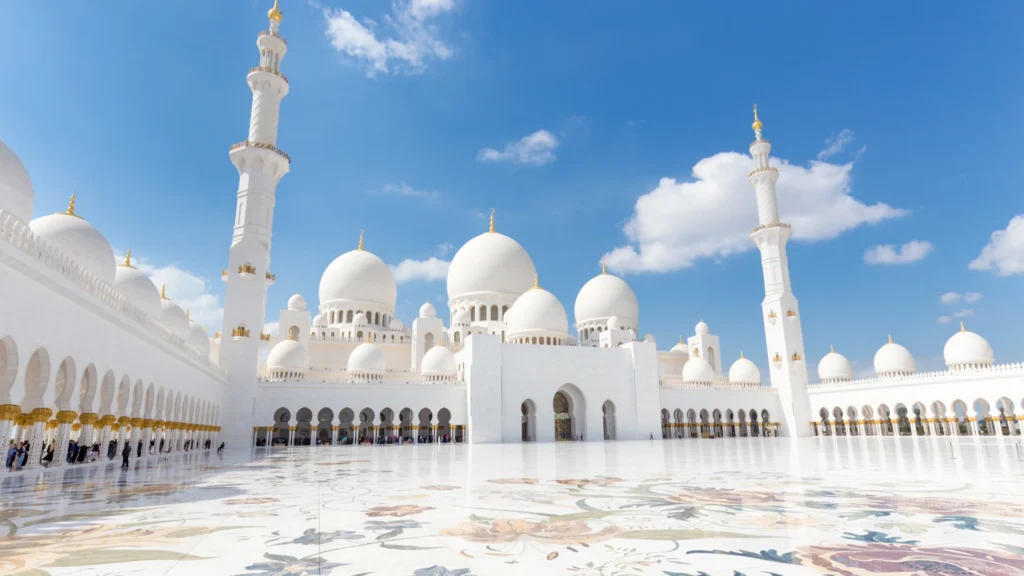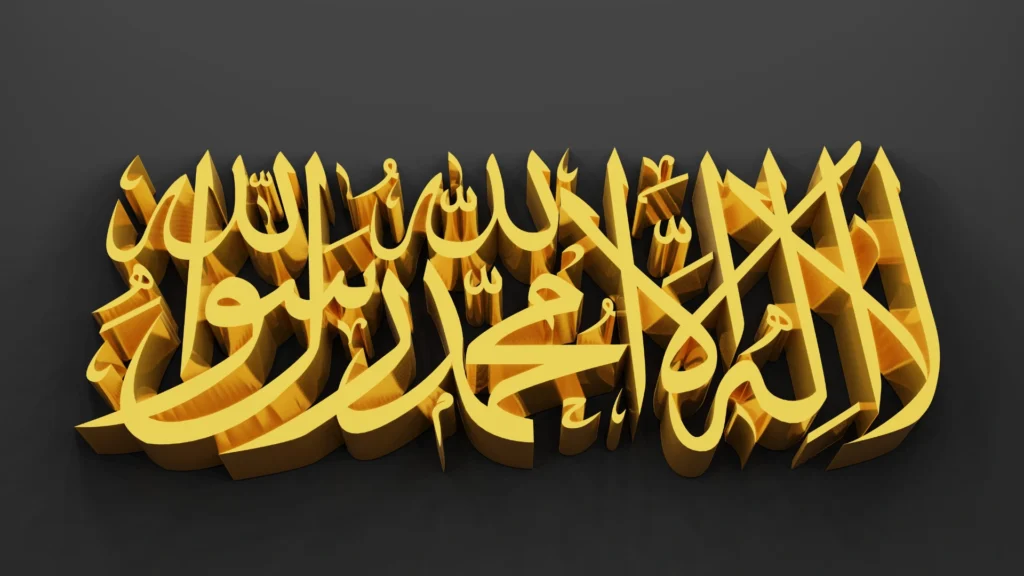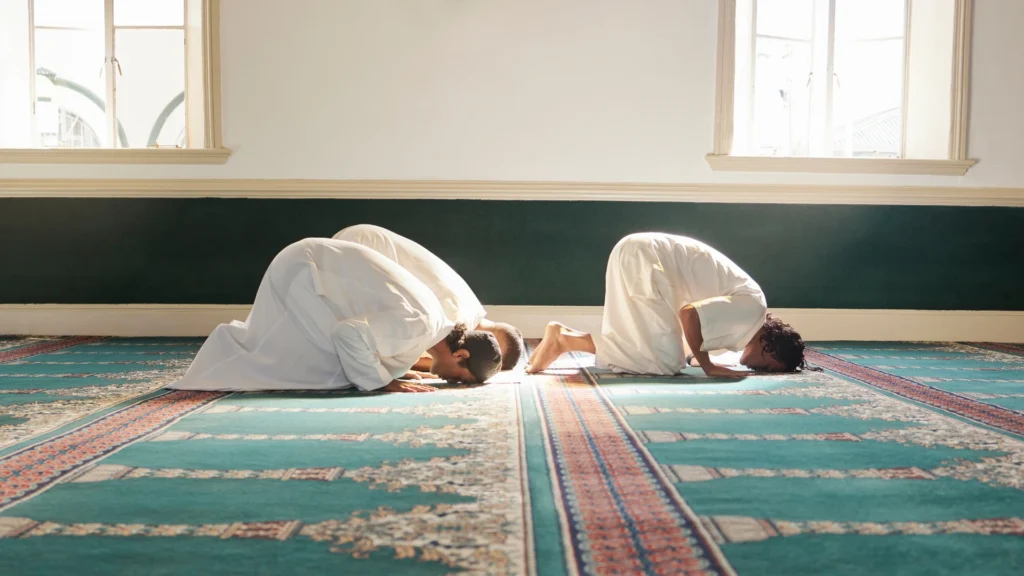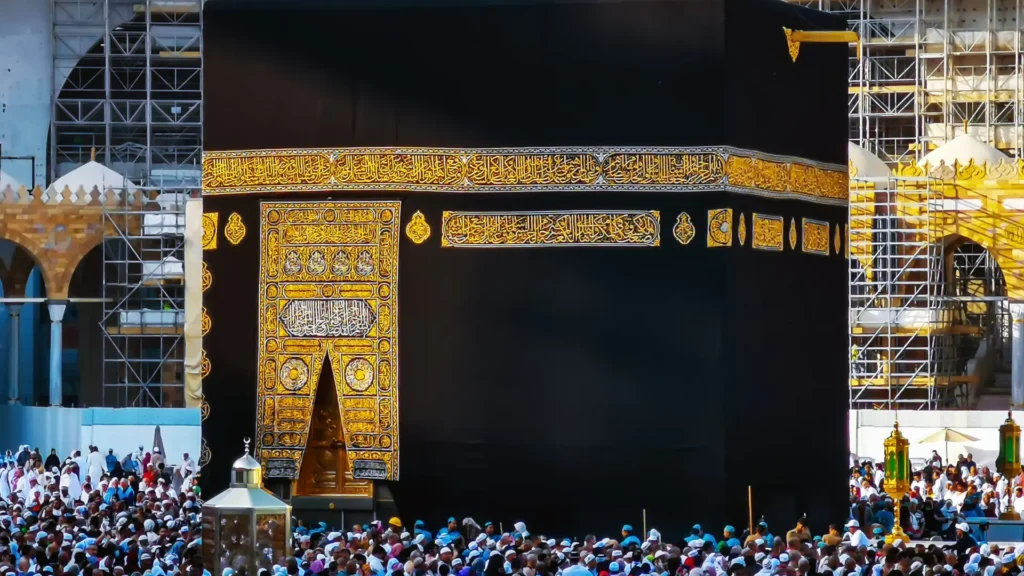5 Pillars of Islam: A Simple Explanation of the Core Beliefs

By Hub Al Quran, Online Quran Academy. 18 February 2024
Table of Contents
The Five Pillars of Islam serve as the foundation upon which a Muslim’s spiritual journey and way of life are constructed. They provide:
- A clear roadmap for adherents to follow.
- Guiding them in their worship.
- Moral conduct.
- Interactions with others.
Each pillar holds significant importance, contributing to the overall well-being and spiritual growth of individuals within the Islamic community.
These pillars include the declaration of faith (Shahada), prayer (Salat), almsgiving (Zakat), fasting (Sawm), and pilgrimage to Mecca (Hajj). Through adhering to these pillars, Muslims strengthen their connection to Allah, demonstrate their commitment to their faith, and cultivate a sense of unity and compassion in the broader community. By understanding the significance, benefits, requirements, and teachings associated with each pillar, Muslims can deepen their spiritual practice and lead a fulfilling life guided by Islamic principles.
1: Shahada (Faith)

The Shahada, or declaration of faith, is the core belief of Islam. It asserts the belief in the oneness of God (Allah) and the acceptance of Muhammad as His final messenger. This declaration embodies the essence of monotheism and the importance of following the teachings of the Prophet Muhammad.
By professing the Shahada, Muslims affirm their commitment to Islam and declare their allegiance to God. It serves as a reminder of the central tenets of the faith and reinforces the unity of the Muslim community.
The Shahada must be recited sincerely and voluntarily by anyone embracing Islam. Prophet Muhammad (peace be upon him) said, “Whoever says, ‘La ilaha illallah,’ (There is no god but Allah) seeking the countenance of Allah, will enter Paradise.” (Sahih Muslim)
Importance in Islam: The Shahada encapsulates the essence of Islamic monotheism and underscores the principle of Tawhid (the oneness of Allah). It serves as a constant reminder of the ultimate purpose of life – to worship and submit to the will of Allah. Embracing the Shahada initiates one into the Muslim community (Ummah) and signifies a lifelong commitment to living in accordance with Islamic principles.
2:Salah (Prayer)

The second pillar of Islam is salah, or ritual prayer, which facilitates direct communication between a believer and their Creator. It is a demonstration of submission, gratitude, and reverence towards Allah.
Regular prayers provide spiritual nourishment, fostering mindfulness and a sense of closeness to Allah. Prophet Muhammad (peace be upon him) said, “The first matter that the slave will be brought to account for on the Day of Judgment is the prayer. If it is sound, then the rest of his deeds will be sound. And if it is bad, then the rest of his deeds will be bad.” (Sunan an-Nasa’i)
Salah involves specific actions and recitations performed in a prescribed manner. It must be offered at designated times throughout the day and night. Prophet Muhammad (peace be upon him) highlighted the importance of regular prayer, stating, “The five daily prayers and the Friday prayers are a repentance for all acts, provided there are no major sins committed in between.” (Sahih Muslim)
Importance in Islam: Salah is considered the backbone of a Muslim’s spiritual practice, strengthening their bond with Allah and reinforcing their commitment to the faith. It punctuates the daily routine, providing moments of reflection, gratitude, and supplication. The Prophet Muhammad emphasized the importance of Salah, stating that it distinguishes believers from non-believers and serves as a pillar of Islam.
3:Zakat (Charity)

Zakat is the obligatory charity incumbent upon financially capable Muslims. It serves to purify one’s wealth and redistribute resources among those in need, promoting social justice and compassion.
Giving Zakat cultivates empathy and generosity while addressing societal inequalities. Prophet Muhammad (peace be upon him) said, “Charity does not decrease wealth.” (Sahih Muslim) It purifies the soul and blesses one’s wealth.
Zakat is calculated based on accumulated wealth and assets, such as savings, investments, and business profits. It is typically set at 2.5% of one’s wealth. Prophet Muhammad (peace be upon him) outlined the categories of recipients eligible for Zakat, including the poor, needy, debtors, and travellers in need.
Importance in Islam: Zakat exemplifies the Islamic principle of collective responsibility and caring for the less fortunate. It purifies wealth and fosters empathy and generosity among believers. The Prophet Muhammad described Zakat as a means of cleansing one’s wealth and ensuring its blessings. By fulfilling the obligation of Zakat, Muslims uphold the values of compassion, generosity, and social welfare prescribed by Islam.
4:Sawm (Fasting)

Sawm, or fasting during the month of Ramadan, is a pillar that emphasizes self-discipline, spiritual reflection, and empathy for the less fortunate.
Fasting purifies the soul and strengthens one’s connection to Allah. Prophet Muhammad (peace be upon him) said, “Whoever fasts Ramadan out of faith and in the hope of reward, his previous sins will be forgiven.” (Sahih al-Bukhari) Fasting instils self-control and gratitude for blessings.
Fasting requires abstaining from food, drink, and other physical needs from dawn until sunset throughout the month of Ramadan. Exceptions are made for individuals such as the elderly, travellers, menstruating women, and those with health conditions. Prophet Muhammad (peace be upon him) emphasized the importance of Ramadan fasting, stating, “Whoever establishes prayers during the nights of Ramadan faithfully out of sincere faith and hoping to attain Allah’s rewards (not for showing off), all his past sins will be forgiven.” (Sahih al-Bukhari)
Importance in Islam: Ramadan fasting is regarded as one of the most meritorious acts of worship in Islam. It fosters self-discipline, empathy for the less fortunate, and spiritual purification. The Prophet Muhammad highlighted the significance of fasting during Ramadan, stating that it expiates sins and elevates one’s spiritual status. By observing Sawm, Muslims strengthen their piety, deepen their connection to Allah, and cultivate virtues such as patience, gratitude, and self-control.
5: Hajj (Pilgrimage)

If it is both financially and physically feasible, Muslims try to make the Hajj to the holy city of Mecca at least once in their lifetime. It symbolizes unity, equality, and submission to Allah’s will.
Hajj is a profound spiritual journey that cleanses the soul and fosters a sense of unity among Muslims worldwide. Prophet Muhammad (peace be upon him) said, “Whoever performs Hajj and does not commit any obscenity or transgression will return [free from sins] as he was on the day his mother gave birth to him.” (Sahih al-Bukhari)
Hajj involves specific rituals performed over several days, including circling the Kaaba, running between the hills of Safa and Marwah, and spending a day of devotion at Mount Arafat. Participants must adhere to the prescribed dress code, etiquette, and spiritual intentions throughout the pilgrimage. Prophet Muhammad (peace be upon him) said, “Whoever performs Hajj for Allah’s pleasure and does not have sexual relations with his wife and does not do evil or sins then he will return (after Hajj free from all sins) as if he were born anew.” (Sahih al-Bukhari)
Importance in Islam: Hajj is considered the fifth pillar of Islam and is obligatory for those who are physically and financially capable. It commemorates the legacy of Prophet Abraham and his family, emphasizing the universal principles of faith, sacrifice, and devotion to Allah. The Prophet Muhammad described Hajj as a profound spiritual experience that cleanses the soul and reaffirms one’s commitment to Islam. By performing Hajj, Muslims fulfil a sacred duty and experience a sense of unity and brotherhood with fellow believers.
In conclusion, the Five Pillars of Islam serve as the cornerstone of a Muslim’s faith, providing essential guidance for their spiritual journey and moral conduct. These pillars are deeply significant, offering distinct benefits and avenues for personal growth. Through sincere fulfilment of these obligations, Muslims aim to draw closer to Allah and live a life characterized by righteousness and compassion. By upholding the Five Pillars with devotion and integrity, individuals within the Islamic faith find strength, purpose, and fulfilment in their quest for spiritual excellence.
FAQs
The Shahada is the statement of faith in Islam, reaffirming the prophetic status of Muhammad and the unity of Allah. It is crucial because it serves as the foundation of Islamic belief, uniting Muslims worldwide in their devotion to Allah and His teachings.
Muslims pray five times a day: Fajr, Dhuhr, Asr, Maghrib, and Isha. Prayer serves as a direct means of communication with Allah, fostering a deep connection and devotion to the Creator throughout the day.
Zakat is the obligatory charity that financially capable Muslims give to support the less fortunate in their community. It promotes social justice, compassion, and solidarity, reflecting Islam’s emphasis on caring for those in need.
Fasting during Ramadan is a spiritual practice that entails abstaining from food, drink, and other physical needs from dawn until sunset. It fosters self-discipline, empathy, and spiritual purification, as well as gratitude for Allah’s blessings.
Hajj is the pilgrimage to the holy city of Mecca, which Muslims undertake at least once in their lifetime if physically and financially able. It symbolizes unity, equality, and submission to Allah’s will while also serving as a profound spiritual journey of cleansing and renewal.


